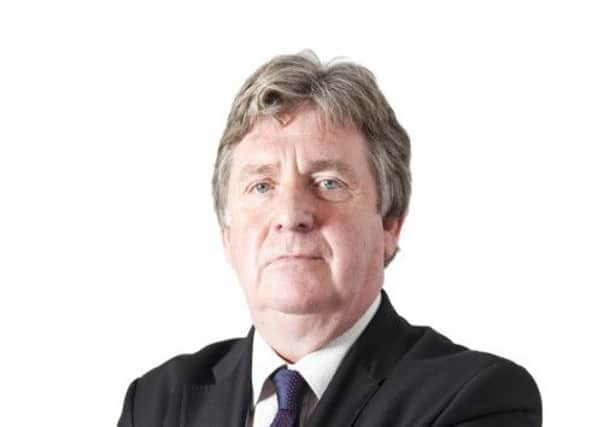Comment: Don’t expect energy price rises to slow


Justin Welby has branded the rises “inexplicable” and urged the likes of RWE, Scottish Gas and Scottish Hydro-owning SSE to temper their pursuit of Mammon with “generosity”. Good luck with that one, archbishop.
Britain’s other major energy players are virtually bound to plug into the prevailing hang ’em high rises zeitgeist, flying in the face of Ed Miliband’s promise – electoral bribe? – to freeze prices if Labour wins the next election.
Advertisement
Hide AdAdvertisement
Hide AdWith almost ineffable timing, the coalition government has confirmed the first new nuclear plant in Britain in a generation, to be built by the French company EDF with generous subsidies from the taxpayer. These will feed through to consumer bills when the plant opens at Hinkley Point in Somerset in 2023.
The archbishop knows better than most about consumers perhaps needing the patience of Job, and yesterday’s announcement gives an unintended meaning to society’s so-called trickle-down effect.
To chafe the running sore of the UK’s energy policy, the Chinese are to take a 30 to 40 per cent stake in the new nuclear assets, with the obvious security implications and the government’s bizarre nonchalance about the prospect.
David Cameron did a national pride, Somerset jobs and energy security gig yesterday. The new nuclear plant will supply 7 per cent of Britain’s energy, but, crucially, the Hinkley owners are promised double the current market rate for their electricity.
Many greens are nauseated, however, because they see freehanded nuclear subsidies meaning less for wave, wind and solar energy. Nobody is happy.
In truth, there is probably no simple “solution” as we look to be witnessing systemic rather than cyclical change in the global energy industry.
Energy nationalism is a wild card, sparking security of supply fears. The environmental evidence mounts monthly of the damaging impact of global warming. And austerity is probably with us for another five years at least.
Nuclear is a clean alternative, but following the higher safety requirements after the Fukushima blowout in Japan, nuclear companies cannot bankroll investment without controversial government – ie taxpayer and consumer – pain.
Advertisement
Hide AdAdvertisement
Hide AdEnergy is similar to another basic industry supplying UK consumers: food. A major component of the march of food prices upwards is a rising tide of middle classes in emerging markets. These newly aspirational waves of people naturally want good meat and fish products rather than cheap staples, and are putting pressure on prices in wholesale food markets.
That is feeding through to supermarkets, with scandals like horsemeat in the food chain pushing up their and suppliers’ security costs as well.
As with energy, the food landscape is changing systemically before our eyes and wallets. In two of the basics for living – food and warmth – things look irreversible, with issues such as nuclear sweeteners or green subsidies changing little.
We are unlikely to starve or freeze. But the new realities of higher costs in both energy and food look permanent beneath the recurring moral, financial and political jousting.